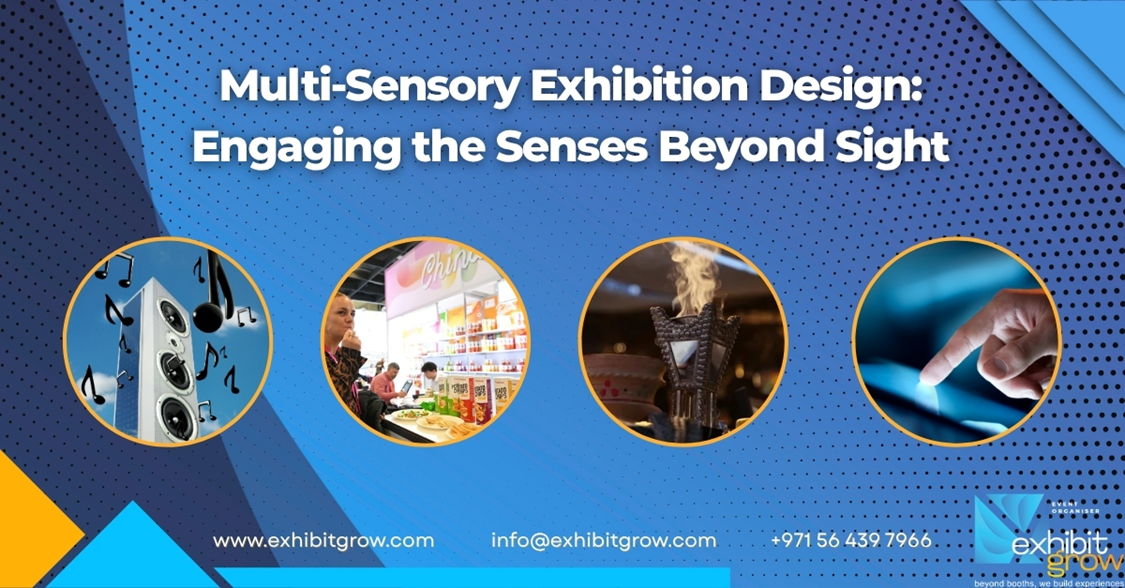Multi-sensory exhibition design: Engaging senses beyond sight

Multi‑Sensory Exhibition Design: Engaging the Senses Beyond Sight
Exhibitions that activate more than vision create meaningful and memorable experiences. By appealing to sound, touch, smell, and even taste, brands can move visitors from passive viewing to fully immersive engagement.
👂 Sound: Build Atmosphere and Focus
Ambient soundscapes—from soft natural environments to rhythmic tones—can shape a space instantly. Interactive audio guides or sound-triggered interactions deepen emotional response and guide visitor movement.
✋ Touch: Create Tactile Connection
Textured surfaces, sculptures, and replica artifacts invite hands-on exploration, drawing curiosity and slowing visitors down. Touch also makes installations more inclusive—especially for visually impaired audiences.
👃 Smell: Trigger Emotion and Memory
Subtle, strategic scents instantly connect visitors with themes—like ocean breezes or floral notes—and linger long after. When used thoughtfully, scent can subtly reinforce branding or storytelling.
👅 Taste: A Flavorful Extension
Organic pairings—like themed teas or local snacks—can transform taste into narrative tools. They support cultural storytelling and sensory recall while adding hospitality to the experience.
🌗 Multi-Sensory Flow: Design That Feels Complete
Combining senses creates rhythm—a pathway woven through scent, touch, sound, and visuals. Thoughtful sensory layering invites longer engagement and deeper emotional connection without overwhelming visitors.
♿ Inclusive and Accessible by Design
Innovation meets inclusivity when exhibitions are designed from the bottom up with multi-sensory experiences. Tactile maps, braille labels, audio cues, and scent-free zones ensure everyone can engage meaningfully.
🚀 Why It Matters
Multi‑sensory design goes beyond aesthetics. It creates emotional resonance, supports memory, broadens inclusivity, and leaves visitors enriched. These richly layered experiences stay with people and reflect deeper brand storytelling.

Comments are closed.